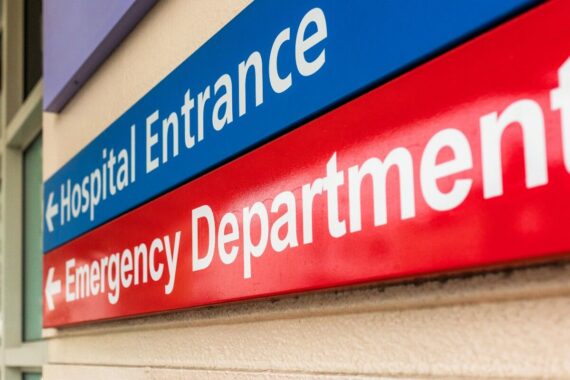GP collective action could have a ‘catastrophic’ impact on A&E and other services, NHS leaders have warned ahead of the ballot closing today.
The action, coordinated by the BMA’s GP committee, is expected to start on Thursday (1 August), depending on the results of a non-statutory ballot of GP partners closing today at midday.
As revealed by Pulse, the examples of collective actions which practices could take include refusing to engage in advice and guidance, declining to sign new contracts with NHS England or the local ICB, and limiting patient contacts to 25 a day per GP.
Now NHS Confederation chief executive Matthew Taylor has warned that if the cap on patient contacts per GP is implemented by all practices, the whole NHS system will be affected.
He said: ‘If all GPs implemented the patient cap, that could have a catastrophic effect on the entire healthcare system.
‘General practice is now supporting more patients than before the Covid pandemic so any reduction in their activity will put more pressure on other services, including A&E.’
As previously reported by Pulse, GPC England chair Dr Bramall-Stainer said that collective action, if done ‘effectively’, will ‘bring the NHS to a standstill very quickly’, but she has reiterated over the weekend that ‘patients won’t come to harm from this’ and that the action is directed at NHS England and the Department of Health and Social Care (DHSC).
Doctors’ Association UK (DAUK) GP spokesperson Dr Steve Taylor told Pulse that four million appointments may be lost if GPs implemented a cap of 25 on patient contacts.
Currently, GPs have an average of 35 contacts per day, so the cap would result in a 28% cut to just over 14 million total GP appointments each month.
However, Dr Taylor warned that will be ‘an underestimate’ since official records of appointments only count ‘those in appointment books not e-consults, text messages, and some telephone appointments’.
Pulse understands that the results of the ballot will be published over the next few days,
The GPC said it is up to practices to choose which actions to take from the proposed menu of actions and that it will be ‘inviting GP partners to work with their practice management team’ and with their LMC to determine the actions they will be willing to take’.
But GP practices can already begin to take this action, which will not breach their contracts according to the GPCE, and NHS England’s board heard last week that the system is ‘already starting to see tension’ as a result of practices ‘pulling back’ from doing discretionary work.
Last week, NHS England warned ICBs and trusts to prepare for an impact on the whole system should practices decide to take collective action from this week.
A spokesperson for NHS England said that GPs and their teams are ‘the bedrock’ of the NHS but recognised that they are ‘under huge pressure’.
They said: ‘We are continuing to work with GPs, the BMA and the government to avert any potential action but in the meantime the NHS has a duty to plan for any possible disruption and to ensure services continue to be provided for patients, so we will continue to work with local systems to help them plan in the event that collective action does go ahead.’
Pulse has approached DHSC for comment.
Pulse October survey
Take our July 2025 survey to potentially win £1.000 worth of tokens














But it needn’t have any bad effect on A&E Depts, or staff, or patients, at all, if NHSE would only negotiate respectfully with GPs and retore the funding needs of the population of people needing to see GPs !
There is an easy way out of this for NHS – it just needs fair re-allocation of resources from rich private care to public NHS GP care.
The ”impact” will be———— ZILCH
It’s unfortunate that the NHS Confederation hasn’t been preparing for the possibility that GPs may no longer be able to sustain an increasing workload over and above their contractual obligations. Few public services can sustained uncapped rising demand using unresourced voluntary contributions. This has been coming down the line for years and the NHS Confederation surely cannot have failed to notice this. General practice cannot be expected to continue doing an increasing share of the heavy lifting with a smaller share of the NHS budget.
The harm will be negligible.
Other than the consequences for the residual irrational respect for the BMA that still persists in odd corners.
Agree with Dr Wilson. The writing has been on the wall for a long time and appropriate funding/staffing in line with increasing patient need would have meant this action would never have been necessary. It seems likely there will be patient impact but then patients are already suffering from the intentional managed failure of primary care.